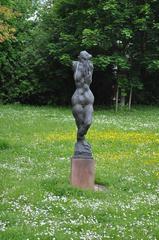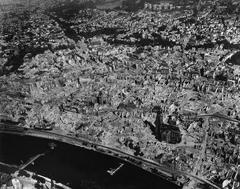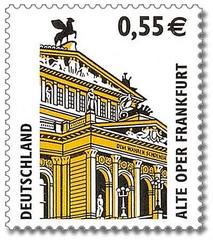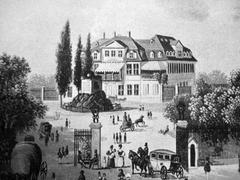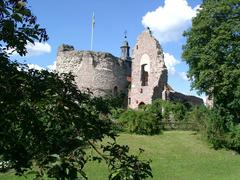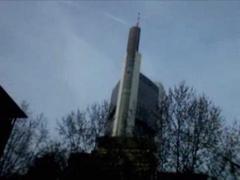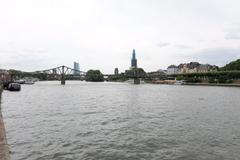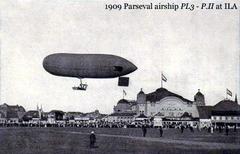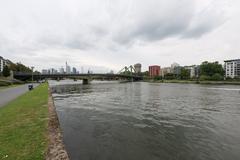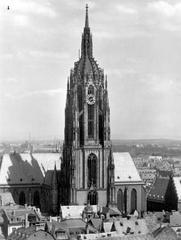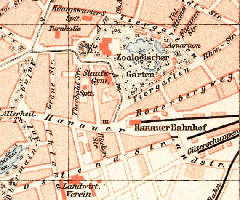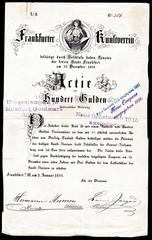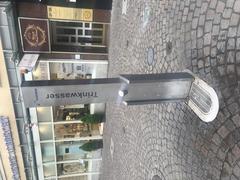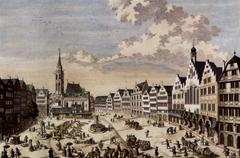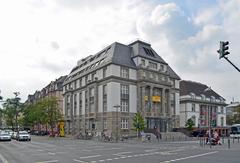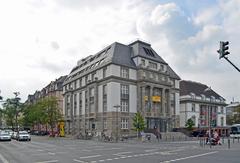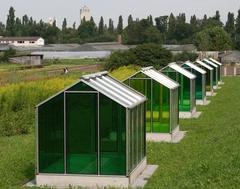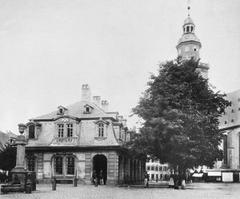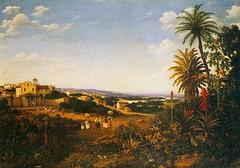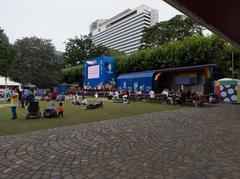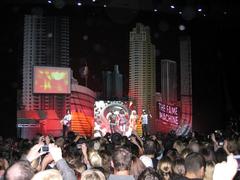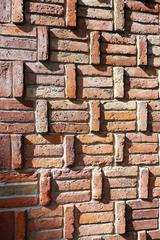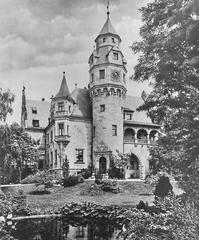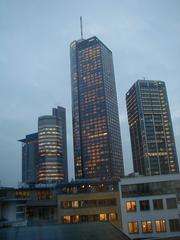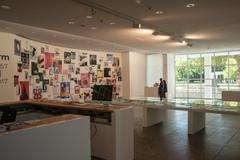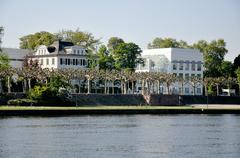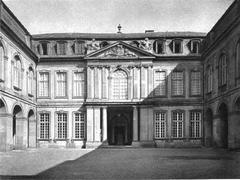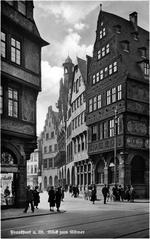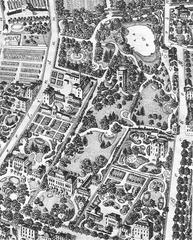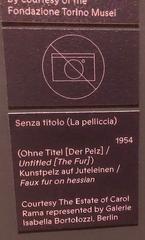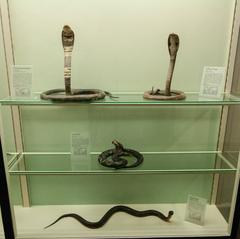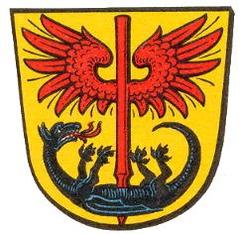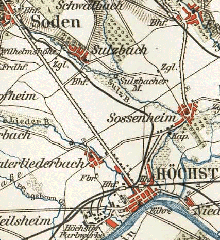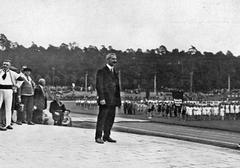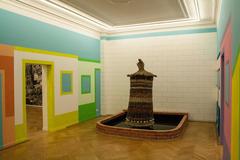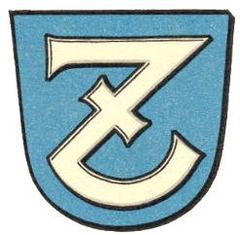
Goethe University Frankfurt Visiting Hours, Tickets, and Travel Guide
Date: 03/07/2025
Introduction: Goethe University Frankfurt’s Significance and Visitor Overview
Goethe University Frankfurt, officially Johann Wolfgang Goethe-Universität Frankfurt am Main, stands as a beacon of academic excellence, historical importance, and cultural vibrancy in the heart of Frankfurt, Germany. Founded in 1914 as a pioneering “citizens’ university”—established through the initiative and financial support of Frankfurt’s residents rather than the state—Goethe University reflects the city’s commitment to intellectual autonomy and civic engagement. Over the past century, it has become one of Germany’s largest and most prestigious research institutions, renowned for its interdisciplinary approach and pivotal role in the development of critical theory through the Frankfurt School.
Visitors are invited to explore the university’s rich history, distinctive architecture, and innovative spirit across its four main campuses: Westend, Riedberg, Niederrad, and Bockenheim. Each campus offers unique academic focuses, from humanities and social sciences to cutting-edge natural and medical sciences. This comprehensive guide provides detailed information on Goethe University’s historical journey, campus highlights, practical visitor info (including visiting hours, accessibility, and tours), and opportunities to engage with ongoing academic and cultural events. For the latest updates, consult the Goethe University History page and Campus Maps and Directions.
Table of Contents
- Introduction
- Historical Overview: A Journey Through Time
- Exploring Goethe University Frankfurt: Campus Highlights and Sites
- Academic Prestige and Global Rankings
- Subject Strengths and Research Excellence
- International Outlook and Diversity
- Campus Environment and Facilities
- Societal Impact and Cultural Contributions
- Visitor Experience: Practical Tips and Information
- Events and Cultural Activities
- Frequently Asked Questions (FAQ)
- References and Resources
- Conclusion and Call to Action
Historical Overview: A Journey Through Time
Founding and Early Development (1912–1933)
Goethe University Frankfurt was founded in 1914 as a unique “citizens’ university,” financed by Frankfurt’s residents. The foundation contract was signed in 1912, and the university opened amidst World War I. From the outset, it integrated diverse scientific institutions, nurturing a multidisciplinary environment.
The Frankfurt School and the Interwar Years
The university’s Institute for Social Research, established in 1923, became the intellectual home of the Frankfurt School, whose members—such as Max Horkheimer, Theodor Adorno, and Herbert Marcuse—developed critical theory and had a profound impact on philosophy, sociology, and cultural studies.
Nazi Era and World War II (1933–1945)
The university suffered under Nazi rule, with faculty and students persecuted, especially those of Jewish descent or leftist leanings. The Institute for Social Research relocated abroad, and the campus was heavily damaged by bombing in 1944.
Postwar Reconstruction and Modernization (1945–Present)
Postwar, Goethe University rebuilt its infrastructure and reestablished its reputation, particularly in the social sciences. The late 1960s saw vibrant student activism and reforms, while subsequent decades brought campus expansion, modernization, and internationalization. In 2014, the university celebrated its centennial, and today it serves over 45,000 students, excelling in research and teaching across disciplines.
Exploring Goethe University Frankfurt: Campus Highlights and Sites
Westend Campus
The Westend Campus is the university’s administrative and academic heart, featuring the iconic I.G. Farben Building—a prime example of early 20th-century modernist architecture. The campus is renowned for its landscaped green spaces, museums, libraries, and vibrant student life.
Riedberg Campus
A cutting-edge center for natural sciences, Riedberg Campus houses state-of-the-art laboratories and research facilities. It is also adjacent to the Frankfurt Botanical Garden, offering a tranquil environment for learning and relaxation.
Niederrad Campus (University Hospital)
Home to the Medical Faculty and University Hospital, Niederrad Campus is a leading center for medicine, dentistry, and health sciences. It is recognized for its research institutes in fields like oncology and neuroscience.
Bockenheim Campus
The original site of the university, Bockenheim still features historic buildings and some humanities departments, and is known for its lively student culture and affordable eateries. Many functions are transitioning to other campuses as part of modernization plans.
Special Sites
- House of Peace (Haus der Stille): A reflective, interfaith space on Westend Campus.
- Institute for Social Research: Continues the intellectual legacy of the Frankfurt School.
Academic Prestige and Global Rankings
Goethe University Frankfurt is consistently ranked among Germany’s top research universities. In 2025, it is placed #309 globally by QS, within the 201–250 band by Times Higher Education (THE), #227 by US News, and #151–200 by ARWU (Collegedunia; THE; EduRank). Nationally, it ranks #14 (QS) and #10 (CWUR), and is the top university in Frankfurt according to EduRank.
Subject Strengths and Research Excellence
The university excels in multiple disciplines:
- Philosophy: #38 globally (QS) (Collegedunia)
- Dentistry: Top 51–120 worldwide
- Law: #=98 globally (THE) (THE)
- Life Sciences & Arts and Humanities: #126–150 (THE)
- Physical and Social Sciences: #151–175 (THE)
- Computer Science: #601–800 (THE), 11th in Germany (EduRank)
- Medical and Health Sciences: High global rankings in gastroenterology, oncology, and cardiac systems (Collegedunia)
Research output includes over 138,000 publications and nearly 4 million citations (EduRank).
International Outlook and Diversity
Goethe University reflects Frankfurt’s cosmopolitan character, with a diverse student body and faculty, robust exchange programs, and global partnerships. It participates in international conferences such as JEMS 2025, and regularly hosts events for international researchers (Goethe University Events).
Campus Environment and Facilities
Goethe University’s campuses offer a blend of historic and modern architecture, extensive libraries, green spaces, and a variety of cafés and dining options. The University Library Johann Christian Senckenberg serves both the university and the wider region, and recent research has addressed the restitution of Nazi-looted books (Goethe University News).
Campuses are accessible and well-connected by Frankfurt’s U-Bahn, S-Bahn, and bus networks. Bicycle rental services and eco-friendly initiatives promote sustainable mobility.
Societal Impact and Cultural Contributions
Goethe University’s influence extends beyond academia, impacting public health, social ethics, and sustainable development. It hosts public lectures, exhibitions, and cultural events, such as the Frankfurt Poetics Lectures, and maintains strong ties with Frankfurt’s museums and cultural institutions (Goethe University Events).
Visitor Experience: Practical Tips and Information
Visiting Hours and Admission
- Campus Access: Generally open to the public from early morning to evening (typically 8:00 AM–8:00 PM on weekdays; reduced hours on weekends).
- Admission: Free for most campus areas; some museums or exhibitions may require tickets.
- Guided Tours: Offered by arrangement and during special events. Booking is recommended.
- Accessibility: Most buildings are wheelchair accessible; contact visitor services for specific needs.
- Photography: Permitted outdoors; indoor photography may require permission.
- Dining: Cafeterias and cafés offer affordable meals; local specialties available in surrounding neighborhoods.
- Wi-Fi: Available in public areas; guest access upon request.
Getting There
- Westend Campus: U-Bahn stations “Holzhausenstraße” and “Westend.”
- Riedberg Campus: U8/U9 subway lines.
- Niederrad Campus: Tram and S-Bahn connections.
- Bockenheim Campus: Accessible via central city transit.
Accommodation
On-campus accommodation is limited to students, but numerous hotels, hostels, and rentals are available nearby. Book early during peak academic periods.
Virtual Tours and Maps
Explore the virtual campus tour or consult official campus maps and directions.
Safety and Etiquette
Frankfurt and its campuses are safe; follow posted rules (e.g., no smoking indoors, respect quiet study zones). Modest attire is appropriate for formal events.
Events and Cultural Activities
Goethe University hosts a wide range of public events, including lectures, exhibitions, science festivals, and concerts. The annual Frankfurt Book Fair is a major highlight. Check event listings for current offerings.
Frequently Asked Questions (FAQ)
Q: What are the visiting hours?
A: Most public campus areas open 8:00 AM–8:00 PM on weekdays; weekend and building-specific hours may vary.
Q: Do I need a ticket?
A: General access is free; some events or exhibitions may require tickets.
Q: Are guided tours available?
A: Yes, by arrangement and during special events.
Q: Is the campus accessible?
A: Yes, most buildings are equipped for visitors with disabilities.
Q: How do I get to the campuses?
A: All campuses are accessible via Frankfurt’s public transport network.
Q: Can I visit libraries?
A: Libraries are open for browsing; borrowing is for students and registered users.
Conclusion and Call to Action
Visiting Goethe University Frankfurt offers a unique opportunity to experience a leading academic institution immersed in rich history, architectural beauty, and dynamic campus life. Whether you’re a prospective student, researcher, or cultural enthusiast, the university’s open campuses, vibrant events, and welcoming atmosphere make it a must-visit landmark in Frankfurt.
Stay connected:
- For the latest information, visit the official Goethe University Frankfurt website.
- Explore campus maps, event listings, and virtual tours online.
- Download the Audiala app for guided audio tours and interactive maps.
- Follow Goethe University on social media for news and event updates.
Plan your visit today to engage with the intellectual heart of Frankfurt and discover the legacy and innovation that define Goethe University Frankfurt.
References and Official Resources
- Goethe University History
- Campus Maps and Directions
- Collegedunia – University Rankings
- Times Higher Education (THE) – University Rankings
- EduRank – University Rankings
- Goethe University News: Research on Nazi Plunder
- JEMS 2025 Conference
- Goethe University Events 2025
- Goethe Business School Virtual Campus Tour
- Studentenwerk – Campus Dining
- Global Office – International Visitor Services







